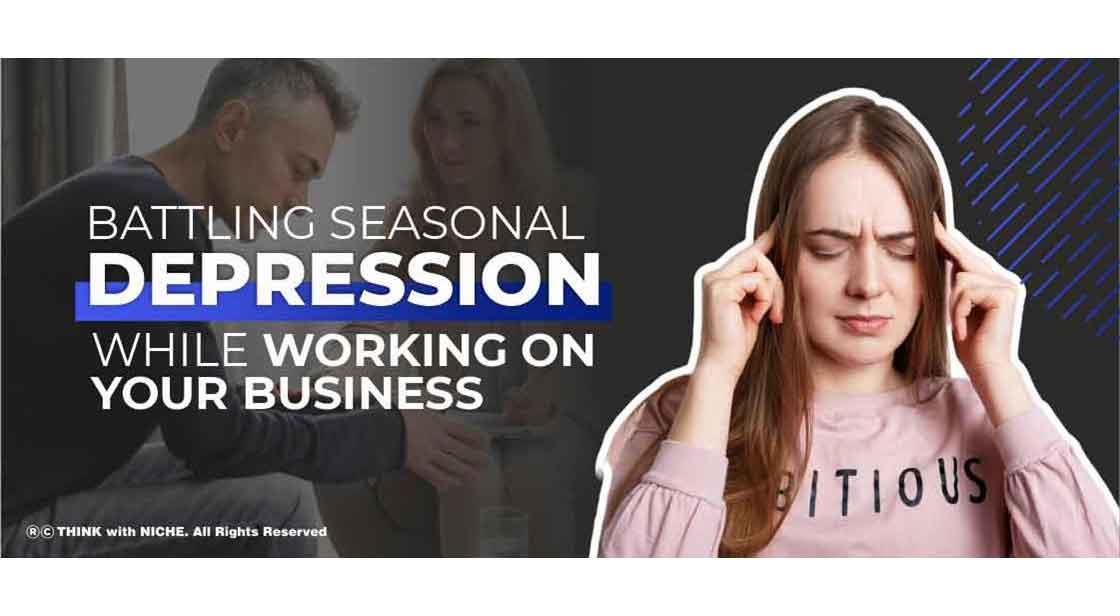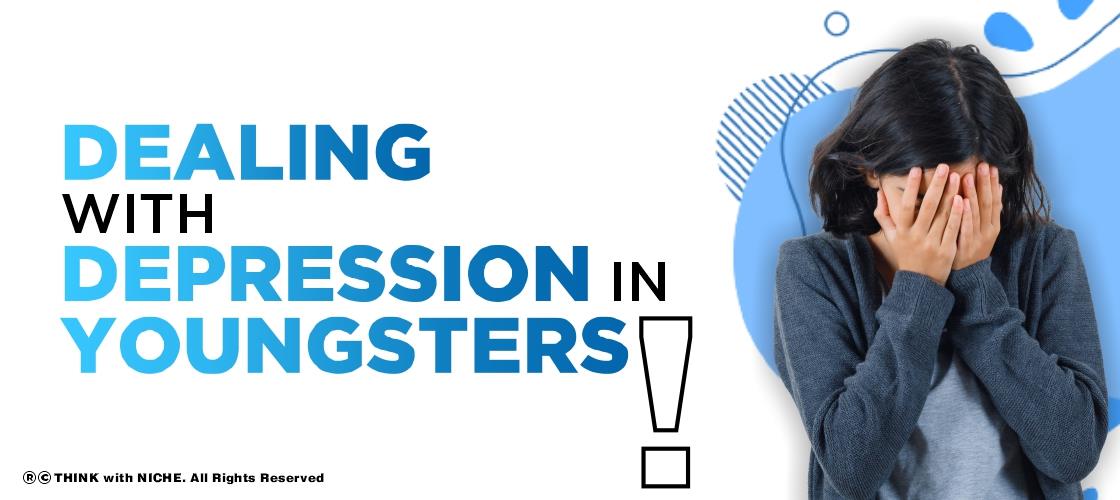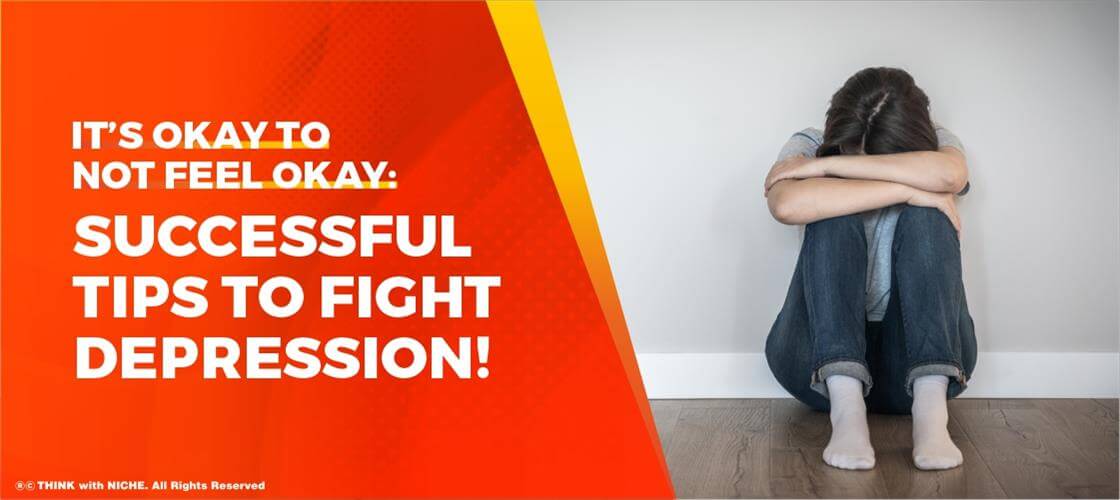Battling Seasonal Depression While Working On Your Business

Blog Post
As an entrepreneur, you will undoubtedly experience some type of anxiety or sadness at some point. At the very least, the chances are highly favorable. Those that reject it are most likely concealing it or are still in denial. It's almost unavoidable in the life of a business owner. The good news is that simply knowing this provides you a significant advantage heading into the game. As an entrepreneur, you'll have to deal with depression. Read on to discover how! #TWN
Depression is likely to strike at the worst possible time, whether it be before, during, or after leaving a firm. However, if you persevere, the silver lining maybe even more rewarding than you anticipated.
ThinkWithNiche brings you an article on how to battle against the seasonal trends of depression that many aspiring entrepreneurs face, something that is hardly ever talked about. Halloween and homecoming have recently gone, and the crisp 60-degree weather is just right. You can feel completely comfortable in either a t-shirt or a hoodie. However, when the weather cools and the days shorten, the lovely fall and winter months can have some surprising mental health implications.
The gravity of grey skies and withered branches is palpable in your mind. You get ready for class, and all you can think about is how chilly you are, how tired you are, and how cold you are. It's also conceivable that you've noticed a change in your mood. Seasonal depression, sometimes termed seasonal affective disorder (SAD), is a subtype of severe depression (MDD). It usually begins in the fall, lasts through the winter, and improves in the spring. Anxiety, melancholy, exhaustion, difficulty concentrating, and a heightened need for carbohydrates are common symptoms. Lack of sunlight is believed to be the prime suspect for causing Seasonal Depression. Low levels of serotonin and increased levels of melatonin have been linked to a lack of sunlight. These solar variations might cause your circadian rhythm to de-regulate, making you feel sluggish throughout the day.
What causes SAD in some people? Some experts firmly believe seasonal variations disturb the circadian rhythm of the body, the 24-hour cycle that influences how effectively we function during sleeping and waking hours, stimulating us to feel invigorated and alert at times and drowsy at others. Another hypothesis is that the changing seasons affect chemicals that govern sleep, mood, and well-being, such as serotonin and melatonin. Whatever the origin of one's SAD, the following symptoms are common:
- Depressive feelings that run the entire day in a form of a seasonal pattern
- Tiredness or a lack of energy
- Genuine loss of interest in otherwise enjoyable activities
- Weight gain or changes in appetite
- Excessive sleeping
It is crucial SAD must be diagnosed by a mental health specialist since it is a type of depression. Several screening questions are influential in identifying whether or not someone is depressed. Your doctor will be able to tell you if you have SAD or if you have another type of depression. You might want to consider preparing your thoughts as well as your home for the fall-to-winter change. Setting aside time for mood-enhancing activities regularly might help people feel physically and psychologically healthier. It's best to get a head start on the winter season by doing delightful activities, initiating buddy group chats and outings, picking entertaining hobbies, and participating in clubs or community service in the fall.
Being proactive is the best course of action. Why is it vital to participate in social activities if you have SAD? There is a link between social isolation and depression, according to research. As a result of the COVID-19 outbreak, isolation has been in limited supply recently. During the continuing pandemic, one recent review article looked at the mental health effects of quarantining. These times of seclusion can end up having long-term psychological consequences, including depression and ever-dreaded post-traumatic stress disorder symptoms (PTSD). It's critical to come up with new strategies to keep connected with others during times of growing isolation. When the weather permits, spend time with family and friends in a local park, participate in outdoor sports or yard games, or go for walks.
If the wintertime darkness, weather, and COVID-19 have you staying indoors more than you'd like, there are alternative methods to socialize besides in-person contact. We can FaceTime or set up Zoom calls with friends and extended family members when the winter weather makes it too chilly to be outside or too dangerous to drive. SAD patients often face difficulty sleeping at night and waking up in the morning. Maintaining a routine allows you to be exposed to light at consistent and predictable intervals. Furthermore, eating at regular intervals can assist you in avoiding overeating. Many people who suffer from SAD gain weight throughout the winter. Outdoor activities are considered to be the most effective treatment for SAD symptoms. If it's too cold or snowy to exercise outside, try utilizing a treadmill, stationary cycle, or elliptical machine near a window at home or the gym. You may also work up a sweat at home by watching fitness videos on YouTube.
If you suffer from seasonal depression or wintertime SAD, you should get outside as much as possible during the day to take advantage of the available sunlight. On cold days, wrap up and go for a walk around the block at midday or shortly after - the sun is at its best then. Keep your blinds open when you're inside to let in as much natural light as possible. If possible, choose a workplace near a source of natural light if you're working remotely. Indoor lighting is substantially less bright compared to natural light, which might be helpful in exacerbating SAD symptoms.
If you enjoyed reading this article, we have two more for you on a similar theme. Click on the link below to explore!

Dealing With Depression in Youngsters

It’s Okay To Not Feel Okay: Successful Tips To Fight Depression!
You May Like
EDITOR’S CHOICE












